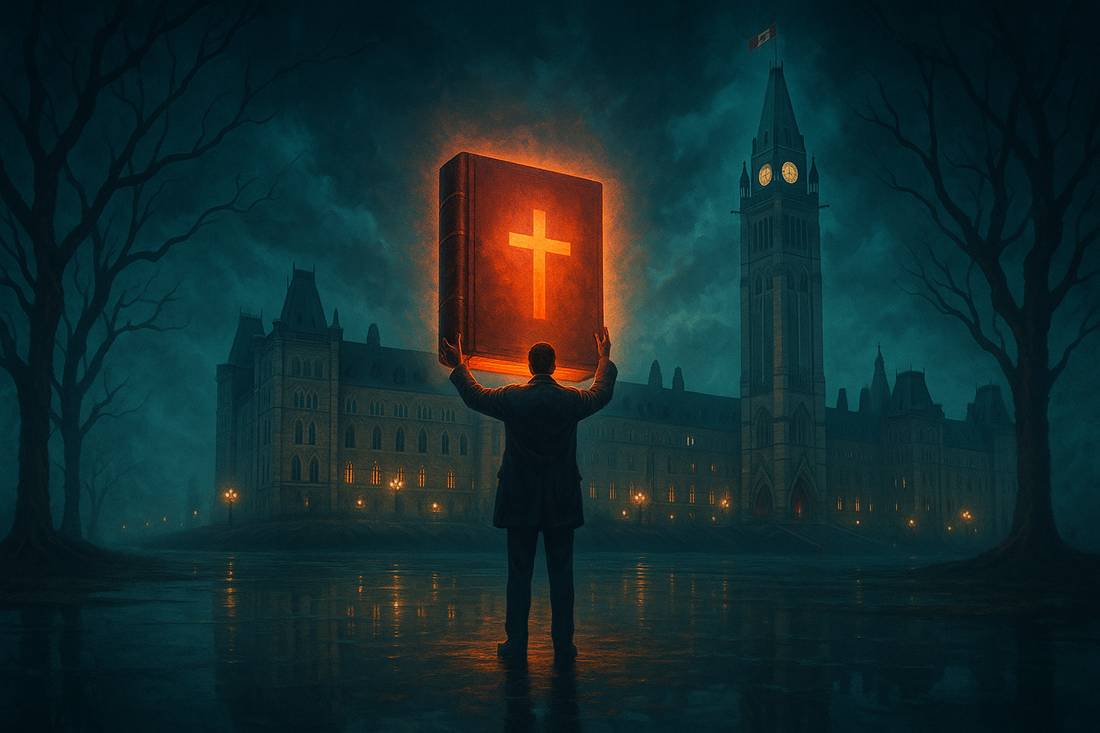
The Davidic Blueprint: Why Canada’s Leaders Must Swear the Oath of Psalm 101
Share
Canada’s problem isn’t a shortage of politicians—it’s a shortage of moral spine. We’ve built a democracy of optics, not oath-keepers. Polls keep warning what people already feel in their gut: trust is bleeding out of our institutions. The rot isn’t just political—it’s spiritual.
The cure was written three thousand years ago, in the war-room of a shepherd-king: Psalm 101.
David’s “Throne Speech” wasn’t a PR rollout—it was a vow. A covenant between power and purity. It laid out the code for leaders who would rather rule cleanly than rule long. And for a nation that still pretends to stand for peace, order, and good government, that code should shake Parliament Hill to its core.
---
The Standard: Mercy and Justice in Equal Measure
David begins not with a policy—but a song.
> “I will sing of steadfast love and justice; to you, O Lord, I will make music.”
Those two words—Chesed (mercy) and Mishpat (justice)—are the double edge of righteous power. One without the other collapses into chaos.
Mercy without law becomes weakness. Law without mercy becomes tyranny.
A Canadian leader who leans too far into “compassion” builds a nation where liars thrive on loopholes. One who rules only with punishment breeds resentment and fear. Balance is the battlefield. A nation governed by both heart and hammer is one that endures.
---
Integrity Begins at Home
David doesn’t start with his cabinet. He starts with his house.
> “I will walk with integrity of heart within my house.”
No slogans. No speeches. Just the quiet war every leader fights when no one’s watching.
What a man watches, what he laughs at, what he hides—that’s the soil his leadership grows from. The Hebrew word Belial—translated “worthless”—literally means rebellion. David vows not to set it before his eyes. In modern terms: no corruption, no addiction to deceit, no tolerance for moral sewage on the screens or in the soul.
Public decay always starts in private rooms. Canada’s capital won’t heal until its leaders clean house—literally and spiritually.
The Courtroom of Character
Psalm 101 reads like a king’s hiring policy:
> “Whoever slanders in secret, I will silence; whoever is proud, I will not tolerate.”
David is building a firewall against gossip, arrogance, and ambition divorced from duty.
He won’t surround himself with flatterers, opportunists, or spin doctors—only the faithful.
> “My eyes will be on the trustworthy in the land... he who walks in integrity shall serve me.”
This is how righteous nations are built—not by charisma, but by conviction. Not by popularity, but by proximity to truth.
And when it comes to enforcing justice, David’s line is fierce:
> “Every morning I will silence all the wicked in the land.”
It’s not a call for cruelty. It’s a reminder that justice delayed is justice denied. Evil thrives in bureaucracy. Integrity demands daily warfare.
The Blueprint for a Nation Worth Leading
Psalm 101 isn’t a relic—it’s a blueprint.
David failed to live it perfectly, but the standard never changed. It was later fulfilled by the only Leader who ever could—Christ, the embodiment of both mercy and judgment.
For Canada, this psalm is less a hymn and more a constitution.
A leader who swears its vow doesn’t just hold office; he carries the weight of moral law on his shoulders. He understands that no country can stand on slogans if its leaders are hollow inside.
It’s time for those who govern to stop managing decay and start pursuing holiness.
Because when leaders walk clean, nations rise strong.
